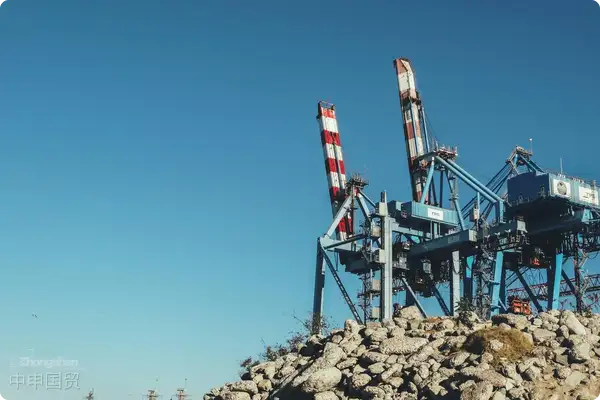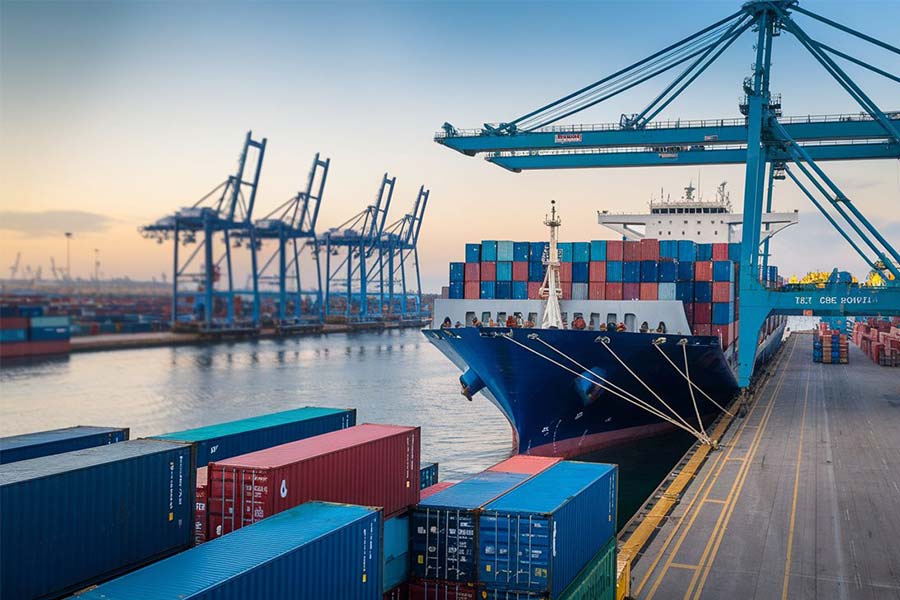- Shanghai Zhongshen International Trade Co., Ltd. - Two decades of trade agency expertise.
- Service Hotline: 139 1787 2118

Contents
ToggleIntroduction: The Allure of Japan's Home Textile Market
As an important economy in Asia, Japan boasts a vast and diverse market for household textiles. With consumers increasingly pursuing higher quality of life, imported household textiles have broad prospects in the Japanese market. For enterprises aiming to expand into the import business of household textiles in Japan, choosing a professionalforeign tradeProxy services are crucial, and next we will delve into the key points in detail.
Professional document processing and logistics arrangement
When importing Japanese household textiles, document processing is a fundamental and crucial step. First is the commercial invoice, which provides detailed information such as the description, quantity, and value of the goods, serving as a key basis for customs valuation and taxation. WeZhongShen International TradeWith a professional documentation team, we ensure the accuracy of invoice content in full compliance with Japanese customs requirements. The packing list is also given due attention, as it clearly details the contents of each package, facilitating customs inspection and inventory checks during logistics and transportation.
Regarding the Bill of Lading (B/L), it serves as the document of title for the goods. We will select the appropriate type of bill of lading based on the mode of transportation, such asMaritime TransportationBill of lading,Air TransportationBills of lading, etc. At the same time, ensure that the information on the bill of lading is consistent with other documents to avoid discrepancies that may cause cargo detention or delays. When handlingIt is recommended to verify through the following methods:When issuing a Certificate of Origin, we are well-versed in Japan's preferential policies for different origins and can assist clients in effectively utilizing these policies to reduce import costs.
Regarding logistics arrangements, the appropriate transportation method should be selected based on the weight, volume, and delivery time of the goods. If the shipment volume is large and the time requirement is not particularly urgent, sea freight is a cost-effective option. We maintain long-term cooperation with several well-known shipping companies, enabling us to secure competitive freight rates and shipping space. For urgent samples or small batches of goods, air freight can meet the demand for rapid delivery. Upon the goods' arrival at Japanese ports, we will promptly arrange customs clearance procedures to ensure swift entry into the Japanese market.
Russian market and VTBFX Settlement AgencyAdvantages
While we focus on importing Japanese household textiles, our company also has a strong foothold in the Russian market, with its VTB foreign exchange settlement advantage being particularly noteworthy. In international trade, the safety and efficiency of foreign exchange settlement are crucial. When it comes to business with Russia, conducting foreign exchange settlements through VTB Bank offers numerous conveniences.
As a key financial institution in Russia, VTB Bank has a well-established domestic settlement system. Taking the export of home textiles to Russia as an example, after the goods are delivered and the relevant documents are obtained, the seller submits the documents to a domestic bank (such as through our partner bank). The domestic bank then forwards the documents to VTB Bank's branch in Russia. Upon verifying the documents, VTB Bank transfers the payment to the seller's domestic account at the agreed exchange rate. Compared to some other channels, this settlement method reduces intermediate steps, mitigates exchange rate fluctuation risks, enhances settlement efficiency, and ensures timely fund recovery.
Southeast Asian Marketimport and exportProcess and Solution
The Southeast Asian market has become increasingly important in international trade in recent years. Importing home textiles from Southeast Asia to Japan begins with market research and supplier selection. Different countries in the Southeast Asian region have distinct industrial advantages. For example, Vietnam's textile industry is rapidly developing, offering lower labor costs and high cost-performance products. When selecting suppliers, it is essential to evaluate various factors such as production capacity, product quality, and reputation.
Signing the contract is a crucial step, and the contract must clearly specify important terms such as the specifications, quantity, price, delivery period, and payment method of the goods. For example, common payment methods includeL/C(Letter of Credit, L/C), which is a form of bank credit, provides certain guarantees for both the buyer and the seller. The buyer applies to the issuing bank to open a letter of credit in favor of the seller. Upon the seller's submission of compliant documents as required by the L/C, the issuing bank assumes the payment obligation.
After the goods are ready, arrange for transportation. Shipping is the primary method from Southeast Asia to Japan. Before loading the goods onto the ship, customs clearance procedures must be completed. During customs declaration, documents such as the commercial invoice, packing list, and bill of lading need to be submitted to declare the detailed information of the goods. Customs will conduct inspections and levy taxes based on the declared content. After importing into Japan, the same customs clearance procedures must be completed with Japanese customs, including submitting relevant documents and undergoing inspections.
To address potential risks such as product quality issues or shipping delays, we will develop solutions in advance. The contract will include quality inspection clauses, such as arranging for an independent third-party inspection agency to examine the goods upon arrival in Japan. For shipping delays, we will maintain close communication with the shipping company to track the cargo status in real time and proactively negotiate solutions with the client.
Challenges and Opportunities in the Current International Trade Landscape
The current international trade situation is complex and ever-changing. The rise of trade protectionism poses a significant challenge, as countries have introduced various trade restrictions, such as raising tariffs and setting up technical barriers. For Japan's imported home textile business, this has increased import costs and market access difficulties. For example, some countries may impose stricter requirements on the chemical composition and environmental standards of home textiles, forcing companies to invest more time and resources to meet these standards.
However, there are also numerous opportunities. With the development of global e-commerce, online sales channels have expanded the market reach of home textiles. Companies can directly target Japanese consumers through e-commerce platforms, reducing intermediate links and increasing profit margins. At the same time, regional economic cooperation continues to strengthen, such as the implementation of RCEP, which has brought more favorable conditions for trade in the Asia-Pacific region. Under the RCEP framework, tariffs among member countries are gradually reduced, and trade facilitation is improved, which is a significant advantage for the business of importing home textiles from Southeast Asia to Japan.
Key Points Regarding Product Certification Services
In the process of importing household textiles to Japan, product certification is an indispensable step. Japan has stringent quality and safety standards for household textiles. For instance, Japan's hazardous substance control regulations require that textiles must not contain certain specific chemical substances, such as azo dyes. Companies must ensure that the imported products comply with these standards.
Although our company does not directly handle certification services, we will assist clients in the process. We will inform them of the required certification types, such as Japan's JIS certification (Japanese Industrial Standards), which is the most important and authoritative national standard in Japan. We will help clients navigate the certification process, guide them in preparing the necessary documentation, and facilitate communication and coordination with certification bodies. With our assistance, clients can more smoothly complete product certification, ensuring their products meet Japanese market requirements and successfully enter the Japanese market.
Conclusion
The Japanese import home textile business is full of opportunities and challenges. Choosing professional foreign trade agency services, such as ZhongShen International Trade, can help companies smoothly conduct business and expand into the Japanese home textile market amidst the complexities of international trade. This is achieved through professional document handling, logistics arrangement capabilities, in-depth understanding of different markets, advantages in foreign exchange settlement, and assistance with product certifications.
Related Recommendations
? 2025. All Rights Reserved. Shanghai ICP No. 2023007705-2  PSB Record: Shanghai No.31011502009912
PSB Record: Shanghai No.31011502009912










